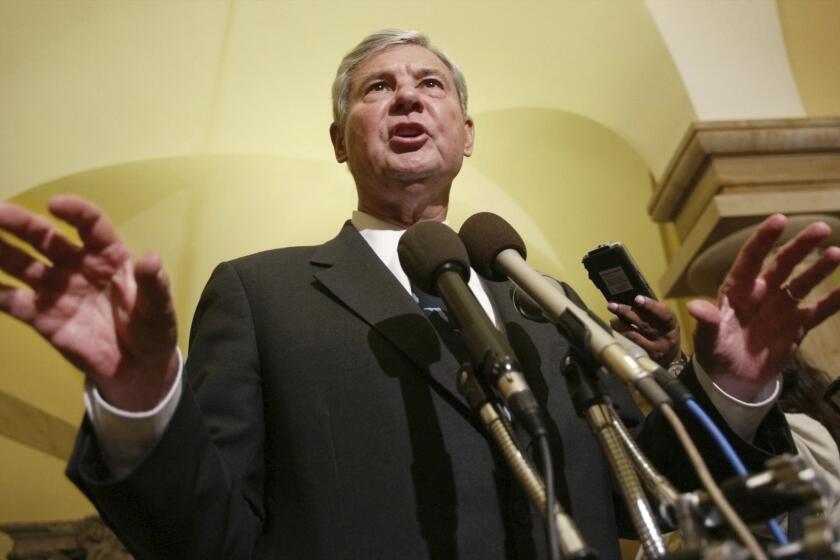We do ‘just get along’
While there have been a few grudging acknowledgments in recent weeks that some things have gotten better in the 20 years since the 1992 riots, there has also been a lot of hand-wringing. Little has improved in Los Angeles over the last two decades, a chorus of naysayers insists.
That’s just not true. There’s been plenty of evidence over the last two decades that not only have things changed for the better in Los Angeles, but they also have in the nation at large. And these positive changes have continued despite the economic ravages of the last four years.
Among the most exciting of these changes is that people have become far more accepting of differences than ever, with tolerance among the 90-plus million millennials (those between the ages of 20 and 31) now registering off the charts. And Los Angeles, once a deeply segregated place, is now the least racially isolated large city in America, according to an analysis of census data by economists Edward L. Glaeser and Jacob L. Vigdor.
A poll released by the Center for the Study of Los Angeles this month gave additional reasons for celebration. The center has conducted extensive polling in Los Angeles every five years since the riots, and this year’s polling found that people not only see the city as safer than it was in 1992, but they also think relations among ethnic groups have improved significantly.
Those surveyed certainly saw problems as well: Some 44% said they believed Los Angeles was “going in the wrong direction.” More than three-quarters of respondents said the economy was worse than it was 20 years ago, and more than two-thirds reported housing being costlier and less available than 20 years ago. Parenthetically, though, when respondents were asked about their own neighborhoods, most viewed them as moving in the “right direction.”
And whatever pessimism respondents expressed about the economy, 69% of those surveyed concluded that “some or a lot of progress” has been made in race relations. That compares with the 57% who were generally positive in 2007, 59% in 2002 and 49% in 1997.
In terms of particular ethnic and racial groups’ views, they were strikingly similar -- the positive assessment of progress cuts across all lines; a sizable majority of blacks (66%), Asians (66%), whites (76%) and Latinos (64%) reported a belief that racial and ethnic groups were getting along “very or somewhat well” in L.A. today. In each grouping, the positives were virtually double that of the pessimists who said we were getting along “somewhat or very badly.”
The data points virtually all reinforce the analysis that people who live in Los Angeles perceive a distinct improvement in racial and ethnic relations. When asked to assess “how much progress the people of Los Angeles have made toward improving race relations since the 1992 riots,” majorities of blacks (57%), Asians (75%), whites (73%) and Latinos (68%) said we have made “a lot or some progress.” In almost every community surveyed, those with a positive view of the change that has taken place since 1992 was double the number of pessimists (the black community was the only one that fell a bit short with optimists outpolling pessimists 57% to 38%).
None of this will stop the “civil rights” spokesmen from bemoaning how little has changed. They have a vested interest in not being perceived as irrelevant (as well as fundraising to do) and so will continue to ignore or discount intergroup progress. Nor will it dissuade those in the media who prefer to focus on conflict. They will undoubtedly continue to cover every isolated incident of racial tension and violence they can find, and seek to extrapolate to society at large. And certainly there always will be academics opining from their ivory towers about what life is like for those of us on the ground.
We don’t live in paradise, and the world isn’t yet perfected, but most of us have concluded that we are moving in the right direction in our relations with one another. The answer to Rodney King’s question 20 years ago? Yes, we can “just get along.”
More to Read
Get the L.A. Times Politics newsletter
Deeply reported insights into legislation, politics and policy from Sacramento, Washington and beyond. In your inbox three times per week.
You may occasionally receive promotional content from the Los Angeles Times.






